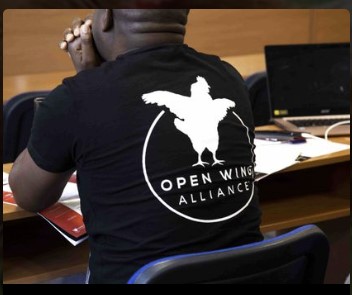Today, the Open Wing Alliance (OWA), a coalition of 95 organizations across 75 countries working to end the abuse of chickens worldwide, launches a consumer-driven
campaign urging companies across sectors to be transparent on their progress towards their global cage-free commitments.
Norwegian Cruise Line,
Colombina,
Lai Sun Dining, and
Wagamama each publicly pledged to source exclusively cage-free eggs. Yet, despite the global food industry’s move away from cruel cages, these companies refuse to reveal whether they still raise egg-laying hens in these archaic conditions across regions. Combined, these companies use approximately 73 million eggs per year, and meeting their cage-free commitments would reduce the suffering of an estimated 260,000 hens.
The Foul Food campaign follows the release of a new report,
Fair and Fowl: Global Companies Edition, addressing the urgent need for corporate transparency in the fast-growing cage-free egg movement. Companies that publish progress reports build consumer trust and showcase their dedication to responsible sourcing, while those engaging in “greenhushing”—concealing their progress to avoid scrutiny—risk damaging their reputations and falling behind competitors.
Norwegian Cruise Line
The third largest cruise line in the world considered an industry leader; Sub-brands include Regent Seven Seas Cruises and Oceania Cruises;
Committed to 100% cage-free eggs globally by the end of 2025; only reporting for shell eggs and refusing to do so for liquid, frozen or ingredient eggs.
Sources approximately 46,150,350 eggs per year, impacting an estimated 164,000 hens.
Colombina
Colombian food manufacturing company; one of the largest food companies in Latin America; Sub-brands include Fiesta and Amazon;
Weakened its original global commitment made publicly in 2019 for its dozens of brands with one that covers only their “La Constancia” brand; not reporting for all brands
Sources approximately 13,500,000 eggs per year, impacting an estimated 48,000 hens.
Lai Sun Dining
Renowned restaurant group based in Hong Kong, known for high-end dining and Michelin-starred establishments that offer a diverse range of cuisines; Sub-brands include China Tang, Beefbar Hong Kong, Cipriani Hong Kong;
Committed to sourcing 100% cage-free eggs by 2023; not reporting progress in all regions;
Sources approximately 1,950,000 eggs per year, impacting an estimated 7,000 hens.
Wagamama
Popular restaurant chain known for its modern, Asian-inspired cuisine; offers plant-based options and claims to use fresh and healthy ingredients; originated in the UK, has gained international recognition and a global presence;
Committed to sourcing 100% cage-free eggs by the end of 2025; not reporting for all regions;
Sources approximately 11,100,000 eggs per year, impacting an estimated 40,000 hens.
“As consumers become more aware of how their food is sourced and how poorly animals are treated by food companies, they won’t stand for a lack of corporate transparency and will simply spend their money elsewhere,” says Brooke Fane, Sr. Global Corporate Campaigns Specialist, The Open Wing Alliance. “We’re witnessing a global movement away from cages in the form of both legislation and corporate policies, and companies must make the shift to cage-free or risk falling behind. As industry-standard deadlines rapidly approach for companies like Norwegian Cruise Line, Colombina, Lai Sun Dining, and Wagamama to remove cages from their supply chains, it’s critical for them to at least provide an update to customers on their progress and a plan for achieving their goals.”
To date, the OWA has
secured more than
2,650 cage-free commitments from corporations around the world—168 of which encompass the entirety of a company’s global supply chain. According to recent research,
89% of all corporations with commitment deadlines of 2023 or earlier have successfully removed cages from their egg supply chains, which includes about 1,200 food companies. With the remaining majority of commitments due in 2025 or 2026, it’s critical that companies are transparent about their progress and establish a glide path for next steps.
Why Cage-Free?
Despite significant progress, over four billion hens worldwide still suffer in tiny, cramped cages that prevent them from stretching their wings or engaging in natural behaviors. These caged systems lead to stress, reproductive disease, and poor bone health in egg-laying hens. In response, several countries, including Austria, Luxembourg, and Switzerland, have banned cages entirely, with many others enacting laws that will soon take effect. In the U.S., eleven states—Arizona, California, Colorado, Massachusetts, Michigan, Nevada, Ohio, Oregon, Rhode Island, Utah, and Washington—have banned battery cages for egg-laying hens.
About the Open Wing Alliance
Founded in 2016 by
The Humane League, the
Open Wing Alliance is a global coalition of 95 animal protection organizations in 75 countries across six continents. The OWA is
changing the way the world’s biggest companies treat animals and setting a new standard for corporate farm animal welfare policies locally—in every major market—and globally. Through shared knowledge, resources, and people power, the OWA is united around their goal to end the abuse of chickens worldwide.

